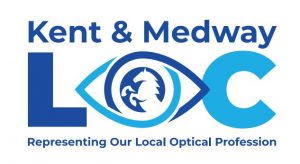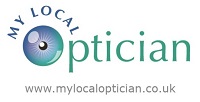EYE EXAMINATIONS
Why are eye tests important?
Our eyes do not always hurt nor do they always affect our vision when something is wrong. Many eye conditions are treatable when found early, sometimes before there are any obvious symptoms. Regular eye tests provide a vital health check for the eyes where early signs of eye disease can be discovered before they permanently affect the eyes.
Who should have an eye test?
Regular eye tests are important for both adults and children.
What happens during an eye test?
The way a sight test is carried out is governed by law and may only be carried out by suitably qualified professionals. The level of your vision will be assessed whether you need glasses to correct your sight and the health of your eyes will be examined to look for signs of injury, disease or abnormality.
Who’s who?
Optometrist – a registered health professional that examines eyes, test sight and dispenses glasses and contact lenses. They can also fit spectacles or contact lenses, give advice on visual problems and detect any ocular disease, referring the patient to a medical practitioner if necessary.
Dispensing Optician – a registered professional who advises on, fits and supplies the most appropriate spectacles after taking account of each patient’s visual, lifestyle and vocational needs. They are also able to fit and provide aftercare for contact lenses after undergoing further specialist training. On completion, practitioners are placed onto a specialty register.
Ophthalmic Medical Practitioner – a registered medical practitioner who has taken postgraduate training in ophthalmology and who undertake NHS sight tests under the General Ophthalmic Services contract.
Is it free?
If you are eligible for a NHS eye test, the NHS pays for it and you will not be charged. If you are not eligible for a NHS-funded eye test, then there will be a fee to pay.
You may qualify for a “free” (NHS-funded eye test) if:-
-
- you’re under 16
- you’re aged 16,17 or 18 and in full-time education
- you’re aged 60 or over
- you’ve been diagnosed with diabetes or glaucoma
- you’re considered at risk of glaucoma by an ophthalmologist
- you’re aged over 40 with a parent, brother, sister or child with glaucoma
- you’re registered blind or partially sighted
- you’re eligible for an NHS Complex Voucher
- you’re on a low income and named on a valid HC2 or HC3 certificate
- you’re claiming specific benefits (Income support, Income-based Jobseeker’s Allowance, Income-based Employment and Support Allowance, Pension Credit Guaranteed Credit or receiving Tax Credits)
- you’re a prisoner being seen outside prison.
Some people are entitled to an NHS-funded mobile sight test (known as a domiciliary sight test), where the practitioner comes to visit you
-
- in your own home – if you are unable to leave home unaccompanied because of physical or mental illness or disability
- at a residential or care home – if you normally live there and you are unable to leave the home unaccompanied because of physical or mental illness or disability
- at a day centre – if you would have difficulty getting a sight test from an optometrist at their practice because of physical or mental illness or disability or because you have difficulty communicating your health needs without help.
At your examination, if you are entitled to a NHS-funded eye test, you will be required to complete a form called GOS1. You will be asked to provide proof of your entitlement.
How often can I have a free NHS eye test?
The frequency of eye tests are determined by your eye professional, however they are required to follow specific guidelines and if earlier than recommended, have to satisfy themselves that a sight test is clinically necessary. NHS eye tests are typically carried out at the following frequencies.
Minimum interval between last eye test (private or NHS-funded):
Under 16 – 1 year
Between 16 years and 70 years – 2 years
70 years and over – 1 year
Over 40 with a family history of glaucoma – 1 year
are Diabetic or have Glaucoma – 1 year
have Ocular hypertension and not in a monitoring scheme – 1 year
What happens after the eye test?
At the end of the eye test, your practitioner will discuss the results with you. They will also hand you a statement that summarizes your optical results and recommendations. If spectacles are required, you may be entitled to an NHS voucher that provides some financial help towards the cost of your spectacles or contact lenses if you are:-
-
- aged under 16
- aged 16,17 or 18 and in full time education
- eligible for an NHS complex voucher
- on a low income and named on a valid HC2 or HC3 certificate
- claiming specific benefits (Income support, Income-based Jobseeker’s Allowance, Income-based Employment and Support Allowance, Pension Credit Guaranteed Credit or receiving Tax Credits)
- a prisoner on leave from prison
Children under 16 and individuals who are registered blind or partially sighted can only have their appliances dispensed by or under the supervision of a registered medical practitioner, registered optometrist or registered dispensing optician.
What can I do to look after my eyes?
Get moving – while it seems odd that exercise can help the eyes, it can be important. Research shows that exercise may reduce the risk of sight loss which occurs from high blood pressure, diabetes and narrowing or hardening of the arteries.
Eat healthily – a healthy, balanced diet, with a wide variety of fruit and vegetables, will benefit your overall health including that of the eyes.
Drink reasonably – heavy alcohol consumption is associated with an increased risk of sight threatening conditions including macular degeneration.
Give up smoking – smokers are much more likely to develop eye disease such as macular degeneration and cataracts compared to non-smokers.
Protect your eyes from the sun – looking directly at the sun can cause irreversible damage to your eyesight and several studies show that exposure to UV rays can cause injury to the eyes such as cataracts. Wearing a wide-brimmed hat and sunglasses can provide a safe level of ultraviolet protection.






